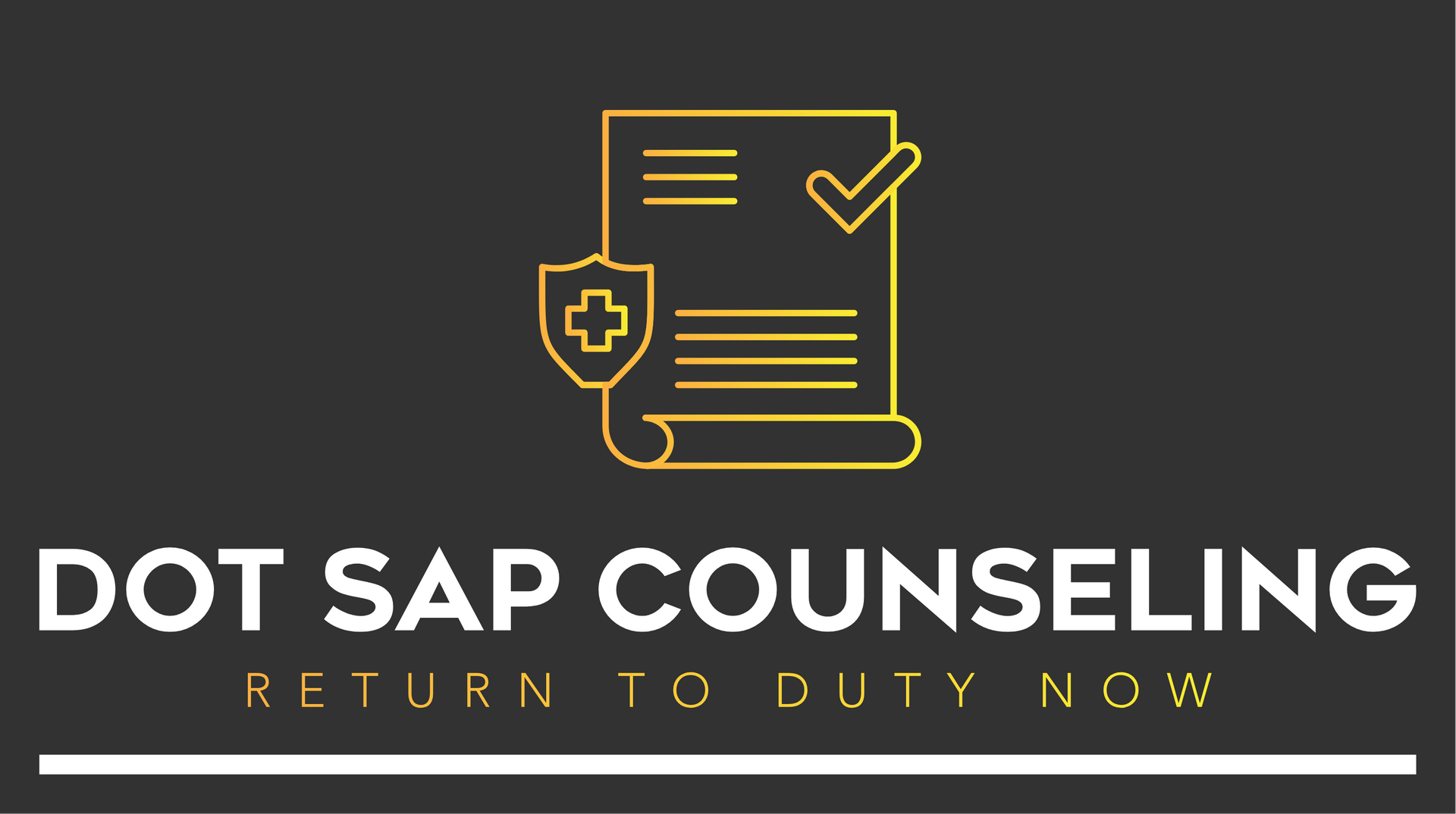What Is the Role of Return to Duty Testing and Follow Up Testing plans in the DOT FMCSA SAP Return To Duty Program
Knowing the importance of the Return To Duty Drug Test, and Follow Up Drug Testing plan is extremely crucial to succeeding after a driver completes the DOT FMCSA SAP Program.
Return To Duty Testing and Follow-up Testing Plans are a required aspect of Returning To a safety-sensitive duty. They serve as a roadmap for individuals seeking to maintain their sobriety and ensure ongoing compliance after an SAP program is completed.
Understanding the significance of these plans can empower individuals on their Return To Duty journey, as we will discuss in further detail below.
Understanding Follow-Up Testing Plans:
Follow-up testing plans outline the support and resources needed after completion of an SAP program.
These plans are essential for individuals transitioning out of SAP programs and returning to a safety-sensitive position. They provide a clear path that helps prevent feelings of uncertainty, which can often lead to relapse.
By detailing specific actions required and having accountability, follow-up testing plans ensure that individuals know what steps to take that will keep them from using drugs or alcohol again while operating a safety-sensitive duty.
Benefits of Having a Follow-Up Testing Plan:
These plans provide accountability, reduce the risk of relapse, and promote ongoing personal growth.
With a follow-up testing plan in place, individuals are more likely to stay connected to their support networks, whether that be friends, family, or support groups and also stay accountable for remaining abstinent from drugs and alcohol.
Moreover, having a roadmap helps build a daily routine, which is vital for sustaining a positive, sober lifestyle.
In essence, follow-up testing plans empower individuals to take ownership of their recovery, leading to improved life satisfaction and control of actions.
Return To Duty Testing and Follow-Up Testing; The Difference:
Return To Duty testing is completed one time once the Employee graduates from their SAP program. The Return To Duty drug test is to demonstrate an employees eligibility to return to a safety-sensitive duty by having a drug and alcohol free body and mind. Once this test is passed, employees are able to begin operating a safety-sensitive duty once again.
Follow-up Testing Plans are ordered by the treating SAP for the employee to complete once their begin operating a safety-sensitive duty again, and are cleared for Return To Duty status. The minimum requirement by law for an SAP ordering a follow-up testing plan is 6 random drug tests in a period of 12 months. However, this can range all the way to 60 months and the number of tests and the length of time are completely dependent on the SAP's evaluation of the Employee.
An effective follow-up plan keeps employees accountable to remaining sober, and following lifestyle changes after the SAP program is complete. The follow-up testing plan demonstrates that the employee is making said changes in their lives and maintaining said changes long-term.
Implementation of Follow-Up Testing Plans:
To implement a follow-up testing plan, an SAP will order the follow-up testing plan for the employee in a written recommendation document that will not be provided to the employee, and will only be provided to the Employer and or CTPA.
Individuals will NOT know what their follow-up testing plan is, and the tests will remain random until the plan is fulfilled and completed.
This collaboration is vital; it ensures that the follow-up testing plan is realistic and tailored to individual needs.
Lastly, always be open to discussing your progress and any adjustments that might be necessary as circumstances change.
The Importance of return-to-duty Drug Testing and Follow-Up Drug Testing Plans in Recovery significantly enhances the chances of long-term success by providing a structured approach to ongoing support and continued accountability to maintain lifestyle changes and follow DOT FMCSA no-tolerance protocols.
DOT SAP Counseling provides direct and structured guidance for how these processes occur and what the employee needs to do to complete these processes and continue forward in their careers successfully.
DOT SAP Counseling clients have nearly a 100% success rate in maintaining sobriety and completing their return to duty and follow-up testing plans.











